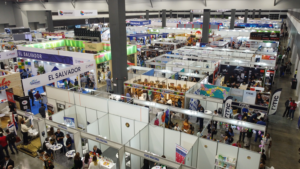China has responded forcefully to new tariff measures imposed by the United States, raising levies on U.S. products to 125%. This decision comes on the heels of Washington’s announcement that its tariffs on Chinese imports now stand at 145%.

In his first statements after the escalation of the conflict, Chinese President Xi Jinping warned that “there are no winners in a tariff war”, making clear Beijing’s rejection of the escalation of trade tensions initiated by Donald Trump’s administration. In an official statement, China expressed its readiness to “respond firmly” and accompany the United States “to the end” if attacks on its economic interests continue.
Despite the defiant tone, Beijing stressed that U.S. products have lost their market in China due to accumulated tax burdens, and therefore considered that any additional increase makes no economic sense. According to the text, these actions will be “irrelevant” and will remain “a mockery in the history of the world economy”.

The conflict has escalated rapidly in recent days. Two days earlier, China had already increased its tariffs on US goods from 34% to 84% in retaliation for a 50% levy imposed by Trump on Chinese products. Washington responded with a further increase, raising the figure to 125%.
Chinese Foreign Ministry spokesman Lin Jian stated that while China “does not want a trade war, it does not fear one”. He also urged the U.S. to cease pressure if it truly seeks a negotiated solution, warning that any negotiations must be based on equality and mutual respect.

As part of its defensive strategy, China has filed a complaint with the World Trade Organization (WTO) against Washington’s latest measures. The state-run press stresses that China’s countermeasures are aimed not only at protecting its interests, but also at defending the global economic order against US unilateralism.







